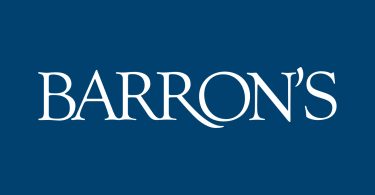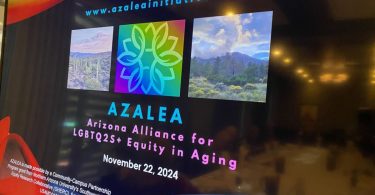On the ballot on November 5, 2024 are candidates for governor of North Carolina, as well as a number of other statewide offices. Democratic candidate Attorney General Josh Stein (pictured above, left) is running against Republican candidate Mark Robinson (pictured above, right), the state’s Lieutenant Governor.
Stein has been an outspoken advocate for LGBTQ rights, speaking out against a Trump administration proposal to strip away health care protections for sexual orientation and gender identity in federal grant regulations, and supporting the Equality Act, federal legislation that would enshrine nondiscrimination protections for LGBTQ people in law nationally. Mark Robinson, the current lieutenant governor, has repeatedly expressed his desire to use the government to criminalize LGBTQ people and remove LGBTQ people from public life.
GLAAD urges media covering this gubernatorial election to provide accurate information and context regarding the candidates’ records and proposals on critical issues impacting LGBTQ people in North Carolina and nationwide.
Josh Stein (D)
Supported the repeal of HB2, the controversial “bathroom bill” that restricted transgender individuals’ access to public restrooms.
Endorsed the expansion of non-discrimination protections for LGBTQ North Carolinians in employment, housing, and public accommodations.
Called on the U.S. Senate to pass the Equality Act, which would provide federal protections against discrimination based on sexual orientation and gender identity.
Condemned federal efforts to undermine LGBTQ health care rights, particularly for children and families.
Opposed attempts to exclude LGBTQ individuals and families from federally funded child welfare programs.
Defended LGBTQ people against discrimination in various areas including health care, financial services, and public accommodations.
Supported expanding North Carolina’s anti-discrimination laws to include sexual orientation and gender identity protections.
Opposed mandates requiring doctors to have hospital admitting privileges, which can create obstacles for abortion care providers.
Voted against bills instituting mandatory delays and biased counseling for abortion care during his time in the North Carolina state Senate.
Mark Robinson (R)
Made numerous controversial posts on a pornography website’s message board in which he reportedly: referred to himself as a “Black Nazi,” made pro-slavery comments, and anti-Black, Jewish, and Muslim comments, along with explicit content.Referred to LGBTQ people as “filth” and doubled down on the statement when criticized.
Called for the arrest of transgender women using public bathrooms, suggesting they should “find a corner outside somewhere.”
Claimed that supporting transgender rights is a “mass delusion” that glorifies Satan.
Described LGBTQ people as “devil worshiping child molesters.“
After the Pulse nightclub massacre in 2016, refused to support Pride celebrations, calling homosexuality an “abominable sin.”
Said gender identity issues are bringing the country to “hell’s gates.”
Asserted that “You CAN NOT love God and support the homosexual agenda.”
Misgendered Michelle Obama and made derogatory comments about her.
Claimed gay rights will be the end of civilization: “We have pushed homosexuality over the top. Mark my words PEDOPHILLA is next, which will be closely followed by the END of civilization as we know it.”
Additional Information
An estimated 382,000 LGBTQ people live in North Carolina. Twenty-six percent of LGBTQ people in North Carolina are raising children. Analysis shows LGBTQ voters played a deciding role in the 2020 election, flipping the Senate to a pro-equality majority. And estimates show that by 2040, approximately 15% of voters in the state will be LGBTQ. North Carolina lacks comprehensive statewide non-discrimination protections for LGBTQ individuals in areas such as employment, housing, and public accommodations.
In North Carolina, the voter registration deadline was October 11, 2024. However, eligible individuals who miss this deadline can still register and vote during the early voting period through same-day registration. Early voting, also known as “one-stop absentee voting,” begins on October 17, 2024, and ends on November 2, 2024, for the general election. Vote by mail, absentee voting is available without requiring an excuse. The last day to request an absentee ballot is 7 days before the election. Completed absentee ballots must be returned to the county board of elections by 5 p.m. on Election Day or postmarked by Election Day and received no later than three days after the election.







